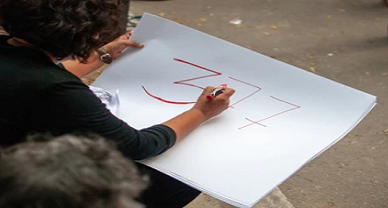Analysis Of The Navtej Singh Johar Judgment
Introduction
The provision under Section 377 of the Indian Penal Code, 1860, which used to criminalize same-sex relationships was struck down in Navtej Singh Johar v. Union of India.[i]The said provision, which criminalizes same-sex relations goes back to the Victorian era. Yet it managed to survive in the laws of India till the historic judgment of 2018.
Five individuals belonging to the LGBTQ+ community that including- notable Bharatanatyam dancer Navtej Singh Johar, restauranteurs Ritu Dalaima and Ayesha Kapur, hotelier Aman Nath and media person Sunil Mehra fileda fresh write petition(many petitions were pending in regard this) for scrapping the provision of Section 377 which criminalized same-sex marriage relationships.
Background
In 2009 Naz Foundation challenged the constitutionality of Section 377, under Articles 14,15,19 and 21 before the Delhi High Court.[ii] This case was Naz Foundation v. Government of NCT Delhi.[iii] In this case, Naz Foundation contented that Section 377 represents an antiquated understanding of the purpose of sex, that it is a means of procreation and this outdated law should not have any place in modern society.
Section 377 of the Indian Penal Code, 1860 can be read as:
“Unnatural offenses: whoever voluntarily has carnal intercourse against the order of nature with any man, women, or animal, shall be punished with [imprisonment for life], or with imprisonment of either description for a term which may extend to ten years, and shall also be liable to fine.
Explanation: penetration is sufficient to constitute the carnal intercourse necessary to the offense described in this section.”[iv]
[Image Sources: Shutterstock]
They also pointed out that this provision is used as a weapon against a section of society. People are harassed by others because of this provision. Even is doing so. Naz foundation also mentioned an incident when its prevention of AIDS/HIV workers was harassed by the police while they were distributing free condoms. They said they were conspiring to commit an offense, and hence arrested them.
As this clause breaches the right to privacy and personal liberty under Article 21 of the Indian Constitution,[v] the Delhi High Court declared in 2009 that intercourse between two consenting adults of the same sex shall not be treated as a crime. The court also ruled that discriminating against and categorising homosexuals is against Article 14 of the Constitution’s guarantee of equal protection. As a result, the human dignity that serves as the foundation of the Indian constitution was breached by this specific Section 377 clause.
Following this Delhi High Court ruling, a number of organisations appealed it to the Supreme Court. The main two arguments they made were that the right to privacy does not include the right to commit any offense, and decriminalizing provisions related to homosexuality will be detrimental to all the institutions of marriage and would attract or lure more youngsters towards homosexual activities.
In 2013,the Supreme Court revised the 2009 Delhi High Court verdict, in the Suresh Koushal case and held that any changes in a Section 377 of theIndian Penal Code can only be made by the parliament, not the court. Hon’ble Apex Court also held that Section 377 criminalizes certain acts and not any particular class or section of people 377 affects only a small number of people i.e., members of the LGBTQ+ community and only a fraction among them had been prosecuted under Section 377. It gave the popular majority more significance than constitutional morality.
After this judgment, many petitions were filled in the Supreme Court to reverse it. But then the petitioner parties of Navtej Singh Johar v Union of Indiafiled a fresh writ petition for scraping out the provisions in 377 which criminalizesame-sexrelationships.[vi]
Judgement
The judgment of this case was delivered by a five-judge bench headed by Chief Justice of India,Justice Deepak Misra. Four different judgments were delivered wherein the court partially struck down section 377 of IPC, and overruled the judgment of Suresh Koushal 2013. The court found that Section 377 discriminates against individuals on the basis of their sexual orientation and or gender identity, violating articles 14, 15; right to life, dignity, and autonomy of personal choice under article 21. Further, the court said that the ability and liberty to realize their identity is also inhibited, violating their freedom of expression under Article 19(1)(a). Judgments of NALSA v Union of India[vii](aka transgender identity case) and Puttaswamy Case[viii] (aka right to privacy case) were referred.
The bench also found that the past judgment of Suresh Koushal failed to recognize how section 377 violates the fundamental rights of an individual belonging to the LGBTQ+ community. Further, it stated 2013 judgment relied on a constitutionally impermissible rationale, using iminisable minority rationale and saying the court need not intervene. The 2019 five judges bench guarantees all the citizens independence of sexual orientation or gender identity as their fundamental right. In reference to the reasons given for the 2013 Suresh Koushal judgment, the bench mentioned that it is concerned with the safeguarding of constitutional morality, not popular morality.
The Supreme Court examined whether Article 377 was constitutional in light of the freedom, equality, and dignity guaranteed by Articles 14, 19, and 21. The court ruled that Article 377 infringes the fundamental rights to privacy, decision-making, and human dignity. Everyone is free to select their sexual orientation, as well as to look for and enjoy company in their own place. Article 377 contradicts Article 21 because it forbids people from exercising their right to consent to sexual activity. It socially rejects gays and prevents a thorough understanding of their unique personalities. The court concluded that “sexual privacy” should be protected and included as part of the right to privacy.
Conclusion
After the foster judgment in Navtej Singh Johar vs UOI the LGBTQ+ finally after 158 years of struggle has been considered by the law as a dignified member of society. It took 68 years to recognize them as the third gender who also have basic rights, duties, etc. as other genders persist. But the society is still in progress or we can say ignoring the fact that something like this is different from theirs but normal human beings also exist. This is a long journey and big ruction which LGBTQ+ have to wrangle onto establish themselves in this society and normalize homosexuality.
This was the first and foremost step towards this changing world taken by our honorable SC which is a thanksgiving moment for the people who suffered for so long. Many steps like this will be taken forward to reach the destination they aim for PIL has been filed in Kerala HC andin Abhijit Iyer Mitra vs UOI,[ix]PIL in Delhi HC for legalizing same-sex marriage under Hindu Marriage Act 1955. The next hearing is on October 21, 2020. Let’s hope for the best, to come from this judgment for the LGBTQ+ community. Time to involve the transformative power of the constitution!
Author: Ipsita Sinha,Student at the National University of Study and Research in Law Ranchi, in case of any queries please contact/write back to us at support@ipandlegalfilings.com or IP & Legal Filing
[i]2018 INSC 790.
[ii]The Constitution of India, art. 14, 15, 19, 21.
[iii]160 Delhi Law Times 277.
[iv]The Indian Penal Code, 1860, § 377.
[v]The Constitution of India, 1950, art. 21.
[vi] Suresh Koushal vs Naz Foundation Civil Appeal No. 10972 OF 2013.
[vii]2014 INSC 275.
[viii]Writ Petition (Civil) No 494 of 2012; (2017) 10 SCC 1; AIR 2017 SC 4161.
[ix]W.P.(C) 6371/2020 & CM APPL. 42707/2021, 43274/2021.



